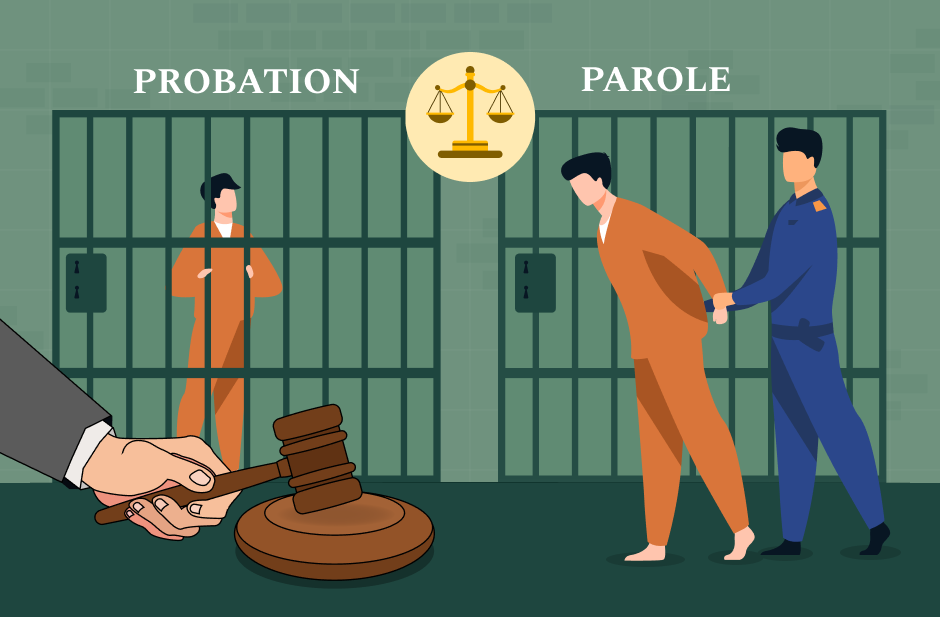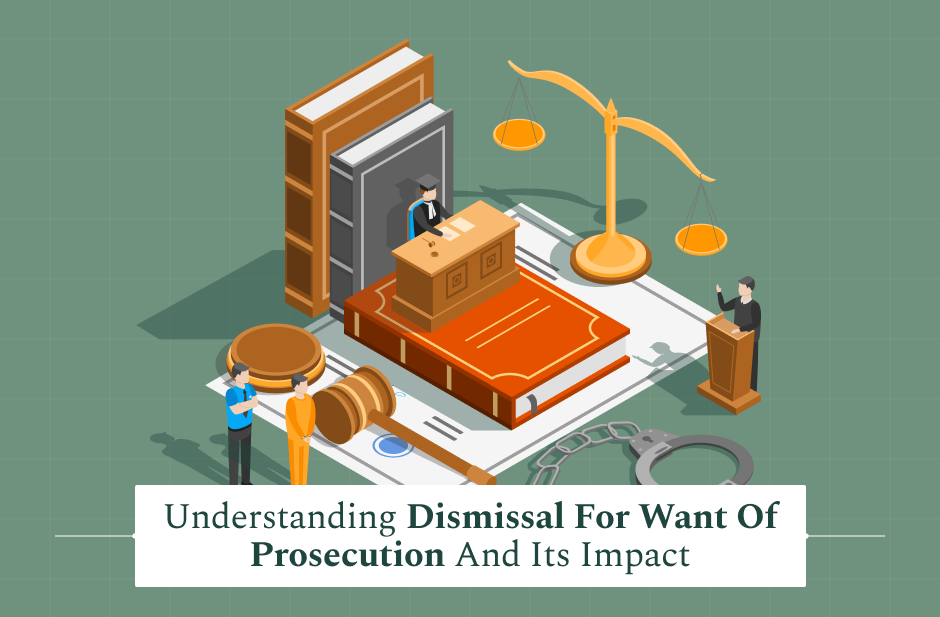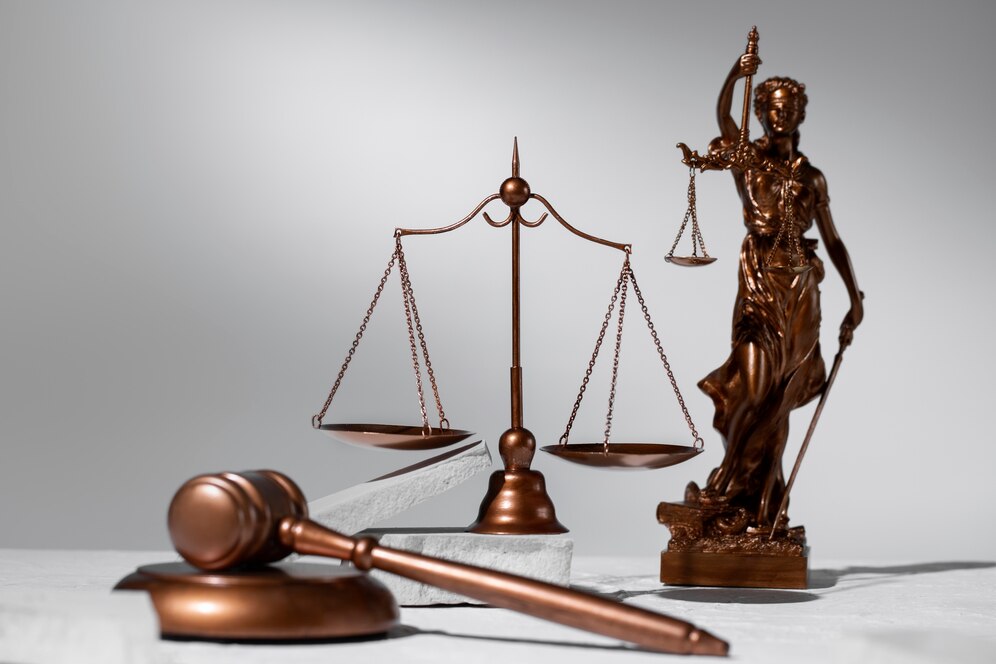The difference between parole and probation might appear to be a bit confusing initially. However, it is really important to grasp it if you or someone you know is dealing with the criminal justice system.
Parole and probation are methods that allow a person to continue living outside of jail or prison — although they are executed differently and at different stages of the legal process.
In this article, I will explain both terms using clear, simple words so that even someone without any legal background can understand. You’ll learn what parole is, what probation is, and how they’re different from each other (hopefully!).
Oh, apart from explaining, I will also give real-life examples and help you figure out which one is better depending on the situation.
So, if that is what you want to know, keep on reading till the end…
What is Parole in Criminal Law?

Parole means letting a person out of prison early, but under strict rules. The person has already served part of their sentence behind bars, and the law gives them a second chance to live outside — if they follow certain conditions.
Think of it like being grounded at home but being allowed to go outside only if you behave and follow the house rules.
Parole is not freedom. It’s like a test. The person must prove that they can live in society without causing problems again. If they break the rules, they might go back to prison.
Elements of Parole
Here are the basic parts (or “elements”) of parole:
- Prison Release: The person has already served time in prison.
- Parole Board Approval: A special group of people decides if the person is ready to be released.
- Supervision: The person is watched by a parole officer.
- Conditions: They must follow rules like checking in regularly, not committing new crimes, and possibly attending counseling or getting a job.
Example of a Parole
Just picture Joe being a dude locked up for five years because of a robbery. After serving three years, Joe turns out to be a very good guy in prison. He basically proves that he wants to be a changed man.
The parole board looks over his file and says, “Listen, Joe, you are allowed to come out now, but only if you agree to our conditions.”
At the moment, Joe is at home, but he still has to do a few things, like meeting his parole officer once a week, going to anger management classes, and not getting into any trouble.
If Joe is not loyal to any of these conditions, he will have to go back to prison to complete the rest of his sentence.
What is Probation in Criminal Law?

Probation means the person doesn’t go to prison at all. Instead, they are given a chance to stay in the community, usually under supervision and with rules they must follow.
The judge gives them probation during their sentencing. It’s a way to avoid prison — but only if they behave.
Think of probation like getting a warning from a teacher at school. Instead of detention, the teacher says, “You can stay in class, but don’t mess up again.”
Elements of Probation
Here are the main parts of probation:
- Court-Ordered: A judge decides it during sentencing.
- No Prison Time: The person does not go to prison unless they break the rules.
- Supervision: A probation officer checks on the person regularly.
- Rules to Follow: The person might need to do community service, attend classes, avoid alcohol or drugs, and more.
Example of Probation
If a woman named Sarah was found stealing some small things from the store without paying, the judge may have decided to give her probation for 1 year instead of sending her to jail.
Sarah will also be required to report to the probation officer monthly aside from not going to the store and taking a class on theft prevention.
In case she abides by the rules, she may be eligible for a clean record. On the contrary, she will have to serve a prison sentence if she is involved in another theft or breaks a rule.
What is the Difference Between Parole and Probation?

Let’s break down the difference between parole and probation into simple terms. This way, it’s easy to see how they are not the same.
Definition
- Parole: Early release from prison. You were in prison first.
- Probation: A way to avoid going to prison at all.
Application
- Parole happens after serving part of your time in prison.
- Probation happens instead of prison.
Eligibility
- Parole: You must show good behavior in prison, and the parole board must believe you’ve changed.
- Probation: The judge decides if you’re not a danger to society and if you’re likely to follow rules.
Supervision
- Parolees report to a parole officer.
- Probationers report to a probation officer.
Both officers do similar work — they check in with the person, make sure they are obeying the rules, and offer help if needed.
Purpose
- Parole helps people slowly return to normal life after prison.
- Probation helps people avoid prison and fix their behavior before it gets worse.
Length of Term
- Parole usually lasts for the rest of the prison sentence or for a set number of years.
- Probation is usually given for 1 to 5 years, depending on the crime and the court’s decision.
Consequences of Violation
- Breaking parole can send you back to prison to finish your time.
- Breaking probation can also send you to prison or jail, or you might get stricter rules added.
In both cases, it’s very serious if the person breaks the rules.
Your Legal Guide: Which One Is A Better Option?
So, which one is better — parole or probation? Well, it depends on the situation.
If someone has already been to jail, parole allows them to go back home earlier and have a fresh start — but only if they have demonstrated good conduct and thus, earned it.
Probation, on the other hand, is even more so beneficial because it is a kind of support for those who are trying to stay out of jail.
They are given the opportunity to live at home, work, and be with their family, provided they follow the regulations.
In case if a criminal issue is pointing at you or someone you love, it is really important to find a lawyer who will guide you on the best things to do.
Understanding the difference between parole and probation may turn out to be very good for you, as it would enable you to make the right choices, stay within the law, and open a brighter perspective for yourself.
Read Also:
















